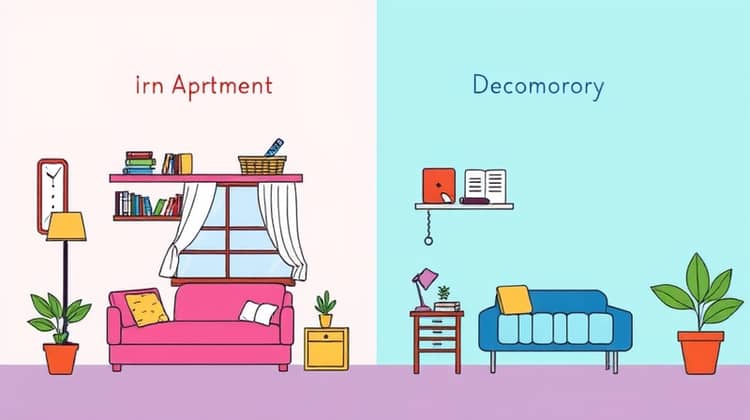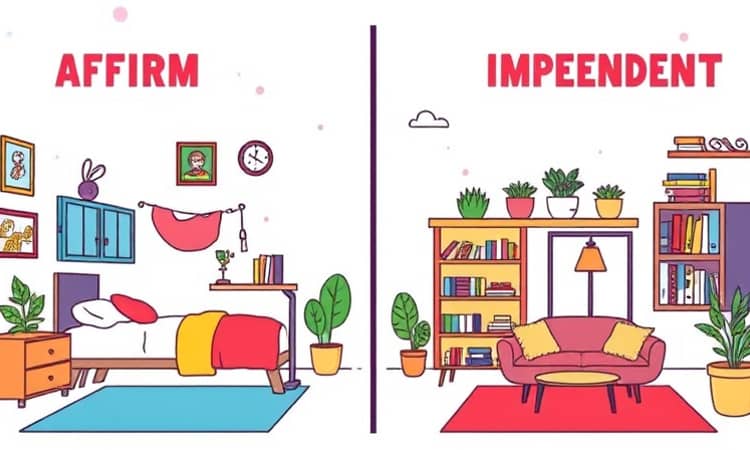As college students prepare for the upcoming academic year, a common issue arises: housing. Two of the most popular options are renting an apartment off-campus or living in a dorm on campus. Each option has its merits and drawbacks, but the most significant factor for many students and their families is cost. This blog post will delve into the financial aspects of both renting and dorm living, comparing them to help students make an informed decision about where to reside while pursuing their education.
Understanding the financial implications of both choices can not only help students save money but also provide insight into their personal needs and lifestyle preferences. Are you looking for independence and more space, or do you desire the community and convenience of campus life? Let's break down the costs and weigh the pros and cons of each.
Cost Breakdown

When it comes to choosing between renting and living in a dormitory, one of the first considerations should be the cost associated with each option. Renting an apartment may initially seem more expensive due to monthly rent and security deposits; however, there are numerous other factors to consider that can influence total expenses.
On the other hand, dormitories often include utilities, internet, and meals in their pricing, which could make them cheaper overall. Nonetheless, additional fees for dorm living such as dorm supply costs and potential meal plan upgrades can add up quickly, and every student's situation is unique. Here’s a closer look at the costs involved in both choices.
- Monthly rent
- Utilities (gas, electricity, water)
- Internet fees
- Groceries and food costs
- Laundry expenses
- Transportation
- Parking fees
In summary, while dorm living might appear cheaper at first glance due to the all-inclusive nature of its pricing, variables such as location, rent prices, and personal habits can significantly alter costs related to renting. For instance, renting an apartment might provide students with greater autonomy and potentially lower overall costs if they share with roommates or choose a location with affordable rent.
Ultimately, the choice comes down to individual financial situations and preferences. It's essential to conduct thorough research and comparisons, considering all hidden fees and additional costs that could arise in either scenario.
Pros and Cons of Renting

Renting off-campus comes with several advantages, including often lower overall costs, more space, and greater privacy. Students who choose to share an apartment can significantly reduce their living expenses while enjoying the freedom to cook their meals, host friends, and decorate their space to their liking.
However, renting also has potential downsides. Students are responsible for managing all bills, finding roommates who contribute positively to the living environment, and navigating leases and legal agreements. In addition, some students may find the transition from dorm living, which is highly structured, to the more independent life of renting a bit challenging.
- More privacy and personal space
- Ability to choose roommates or live alone
- Potentially lower costs with shared rent
- Freedom to decorate and personalize the living space
- Greater independence and flexibility
While renting can provide a more homelike experience, it is essential to be aware of the challenges involved. Students must have strong financial planning skills to stay ahead of obligations and ensure they don't overspend. On top of that, being responsible for household chores and maintenance can be an adjustment for those used to dorm living.
Ultimately, understanding the pros and cons is crucial for students needing to ensure their choice aligns with their priorities and lifestyle.
Pros and Cons of Dorm Living

Dorms provide a structured living environment with built-in community support and proximity to campus facilities. Living in a dorm can enhance the college experience, making it easier to forge new friendships and participate in campus activities.“He’s escalating from high school to college life in such a diverse environment enables students to adapt more rapidly and transition smoothly.
Nevertheless, dorm life also comes with its share of restrictions, like curfews, limited space, and sometimes, lack of privacy.
- Strong sense of community
- Convenient access to campus resources
- Less overall responsibility for bills and maintenance
- Includes meal plans and utilities in costs
While dorm living is a good option for many, each student must assess their comfort level in communal living and the overall academic lifestyle they wish to lead.
Financial Aid and Housing

Financial aid can significantly impact housing choices for students. Some students may qualify for financial assistance that covers their living expenses, both for dorms and off-campus apartments. However, it's important to note how these funds are allocated, as some institutions may provide more support for on-campus living compared to off-campus housing.
Students should also consider scholarships or grants that may specifically include housing costs within their allowances. It could adjust the financial landscape considerably, making one option more feasible than the other.
- Federal student loans
- Grants and scholarships
- Work-study programs
- Institutional aid
- State-specific aid programs
Overall, students need to fully understand how financial aid works in conjunction with their living arrangements. This knowledge can help them avoid any surprises and lead to more informed decision-making.
Conclusion

Ultimately, the choice between renting an apartment or living in a dorm comes down to weighing personal preferences against financial realities. Both options have financial implications that can reach beyond mere rent but will often cater to different students' needs. By understanding the costs associated with each, bridging any gaps through financial aid, and knowing the pros and cons, individuals can approach this decision with clarity.
Making a choice that fits your lifestyle, budget, and success in college is vital. While some may thrive in the structured environment of dorms, others might excel in the independence that renting affords them. Thoroughly examining all factors can help students choose the accommodation best suited to their educational journey, ultimately impacting their overall college experience.
In conclusion, whether it’s the independence of renting or the community of living in a dorm, students must carefully evaluate their options to secure a space that both supports their studies and suits their financial situation.














